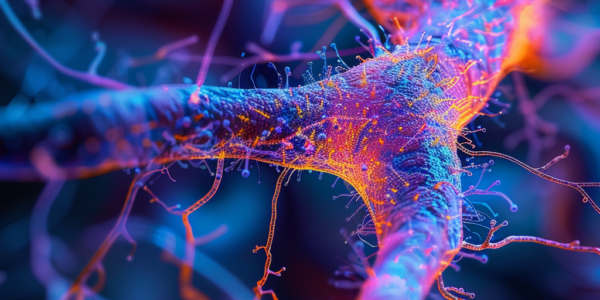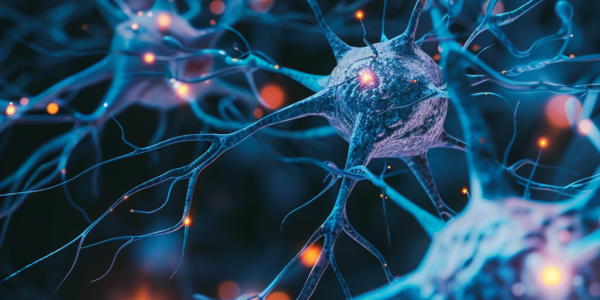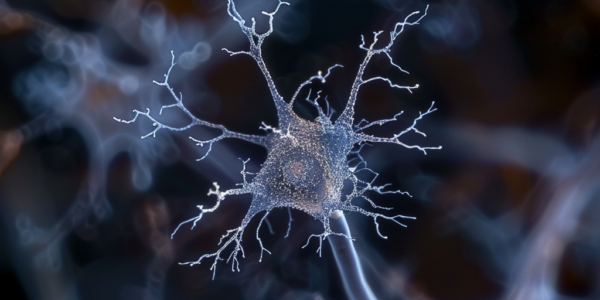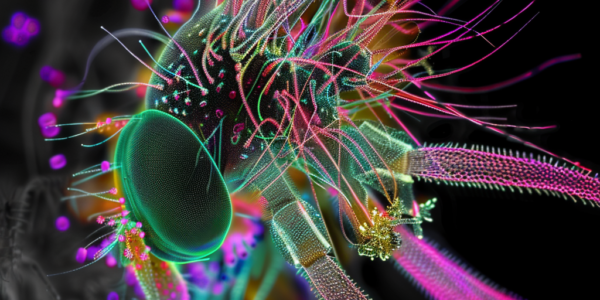The Impact of Exercise on Brain Health
Discover the undeniable benefits of exercise on cognitive and mental well-being. Research shows how physical activity can lead to cellular changes in the brain, improving mood and cognition. Dr. Henriette van Praag’s groundbreaking finding on the growth of new brain cells in mature mice has influenced her personal approach to fitness, incorporating activities like CrossFit and running into her routine. The release of neurotransmitters during exercise plays a crucial role in attention, working memory, and executive functioning, with long-term engagement offering potential benefits for individuals at risk of neurodegenerative diseases.
Enhanced Mitochondrial Fusion and Nerve Cell Function
Recent research from the University of Cologne’s CECAD Cluster of Excellence in Aging Research highlights the role of enhanced mitochondrial fusion in fueling nerve cell function and plasticity. The study has significant implications for brain repair approaches during disease and offers new avenues for potential therapeutic interventions in neurological disorders.
Groundbreaking Discovery in Neuroscience Reveals Unique Development of Brain Blood Vessels
Researchers have made a groundbreaking discovery in neuroscience, uncovering a specific enzyme crucial for the invasion of blood vessels into the brain. This finding challenges long-held beliefs about vascular formation and has significant implications for the treatment of neurological diseases. The study, led by Prof. Benoit Vanhollebeke, highlights the functional alignment between the birth of brain vessels and their specific properties, particularly the blood-brain barrier. This breakthrough not only enhances our understanding of the cardiovascular system but also opens new pathways for developing targeted treatments for neurological diseases.
Study Shows Link Between Food Preferences and Cognitive Function
Discover how food choices are linked to cognitive function, mental health, and brain health in a new collaborative study from Fudan University and the University of Cambridge. The study found that a healthy, balanced diet is associated with better brain health, cognitive function, and mental well-being compared to other diet types. Learn more about the impact of food preferences on cognitive and mental function.
Study Reveals Link Between SARS-CoV-2 and Synaptic Homeostasis in the Brain
Recent research published in Nature Microbiology reveals the impact of SARS-CoV-2 on synaptic homeostasis in the brain and its potential role in COVID-19-related neurological disorders. The study found that SARS-CoV-2 infection leads to the upregulation of synaptic components and disrupts local electrical field potential, indicating a direct impact on synaptic function. These findings offer valuable molecular insights into the interaction between SARS-CoV-2 and the brain, potentially leading to targeted interventions and therapies for COVID-19-related neurological complications.
Study Finds Environmental Chemicals Impact Oligodendrocyte Development
A recent study published in Nature Neuroscience has found that environmental chemicals can impact the development of oligodendrocytes, crucial for neurodevelopment. The study identified two classes of chemicals, quaternary compounds and organophosphate flame retardants, that disrupt oligodendrocyte development through distinct mechanisms. The research also demonstrated the impairment of oligodendrocyte development in mice and human 3D organoid models, as well as associations with adverse neurodevelopmental outcomes. This highlights the need for further investigation into the potential impacts of these environmental chemicals on human health.
Lung-Brain Communication in Sickness Response
Groundbreaking research reveals direct communication between lungs and brain during infection, challenging traditional understanding of sickness response. Study in mice shows neurons in lungs alert brain about infections, leading to symptoms through nervous system activation. Gender differences in sickness behavior observed, shedding light on potential gender disparities in illness experiences. University of Calgary researchers emphasize significance of findings for treatment of respiratory infections and chronic lung conditions.
5 Simple Lifestyle Tweaks to Stimulate the Brain and Improve Memory
Discover five simple lifestyle tweaks recommended by neuroscientist Rachelle Summers to stimulate the brain and improve memory. From getting enough sleep to practicing mindfulness and engaging in aerobic exercise, these tips can help protect brain health and reduce the risk of developing Alzheimer’s disease and dementia.
Unlocking Motion: The Unexpected Complexity of Motor Neurons
Researchers have challenged traditional views on motor neurons through a groundbreaking study on fruit flies, demonstrating that individual motor neurons can produce a variety of complex head movements rather than just simple actions. This research highlights the intricate role these neurons play in bodily motion and opens new avenues for understanding motor system diseases and the interplay between different types of neurons in movement control.
Study Reveals Brain’s Thalamus Role in Hunger-Driven Motivation
Researchers have made a significant breakthrough in understanding the brain’s thalamus and its role in hunger-driven motivation. A recent study conducted with mice has shed light on the involvement of two distinct neuronal populations within the paraventricular nucleus (PVT) in regulating actions aimed at achieving a goal, such as foraging for food. The study revealed that dopamine D2 receptor-positive (PVTD2(+)) neurons play a pivotal role in amplifying motivation and pursuit behaviors, while their counterparts, PVTD2(–) neurons, are linked to action termination. This discovery challenges previous assumptions about the uniformity of the PVT and underscores its critical function in translating hunger into motivated action. The findings hold promise for the development of new treatments for motivation-related psychiatric conditions.










